Masks, Some Clarity.

Ok, so you’ve probably noticed that we recently launched our 100% Organic Cotton Ripstop Face Masks.
At the time of writing, it was reported that the NHS had received 15 million masks in the last 2 days. But there is still a mass shortage of protective equipment across the globe. We are more than aware of this shortage. You cannot buy a surgical mask or N95 mask (they’re the heavy duty masks with a filter) for love nor money. So we want to help in any way we can.
The beauty of being a small business with on-site sampling equipment, we can turn ideas into physical pieces in a short time-frame. We found this lovely example of a fabric face mask and decided to give it a go. Given that the Organic Cotton Ripstop we have on-hand is pretty breathable, we thought this would make the perfect homemade mask. After sampling and a fit test, we decided to divert all of our production focus away from our SS20 collection and towards these masks.
Now we aren’t suggesting that these masks are going to put an end to COVID-19 and we are definitely not saying that these will guarantee that you won’t contract the virus. But if used in the correct fashion they could go some way to doing so. We’ve come across numerous articles that have highlighted the importance of face masks, medically-approved and non-medicically approved. In the aftermath of the Swine Flu outbreak in 2009, researchers at the University of Cambridge conducted a study to test the effectiveness of homemade masks in the event that a shortage of surgical masks may arise. The situation in 2009 wasn’t as severe as the situation we currently find ourselves in, so homemade masks weren’t required. However, the research conducted by scientists at Cambridge University proves how important non surgical masks could be to limiting the spread of a deadly virus such as COVID-19. Their study found that surgical masks and N95 masks were most effective in catching deadly particles (down to 0.02 microns*), catching around 80% and 98% respectively. In an ideal world, every single one of us would be provided with these masks. But the fact of the matter is, even some frontline NHS staff do not have access to them. Therefore, we need to utilise the materials we do have access to, to limit the spread. The aforementioned study found that whilst specialist masks can catch the majority of particles, homemade masks can catch around 50% of particles (down to 0.02 microns). Coronavirus is mainly transmitted by droplets, far bigger than particles. Anything that covers your face, be it a mask or otherwise, will therefore go some way to catching such droplets if you are to come into close contact with anyone with the virus. So, we’re not making these masks for fun, as a gimmick or a marketing exercise. We’re doing this because it has been proven that it goes at least some way to preventing an already deadly disease becoming even deadlier.
In addition to these findings, the same group of scientists found that cotton is the most effective material for homemade masks. This is mainly down to its breathability. Other household materials such as tea towels may catch a greater percentage of particles. But we for one don’t fancy walking the streets with a tea towel around our faces. Not only would we look like an old Western film reject, but it would be pretty difficult to breathe. Luckily, it’s a fabric that we use for the majority of our garments. So using the double-layered design we found, we have produced a number of these face masks in 100% Organic Cotton Ripstop. The great thing about using household materials such as cotton means it can be washed and worn over and over again. Like all of our garments we want our masks to be as sustainable and durable as possible.
We want to reiterate that this will not prevent you from contracting the disease and we’re not saying that this will save lives. However, if we all take greater precautions by staying inside, limiting our interactions with others, washing our hands and listening to government advice (oh, and ensuring we are covered up when leaving the house), we could limit contagion and save lives as a result. In other parts of the world it is common courtesy to wear such masks to prevent infection. We believe it should be the same in other countries, especially whilst COVID-19 is still at large.
It must be stated again, if it has not already been made clear, we at WAWWA are not suggesting that these masks are necessary. It is necessary, however, for us all to wash our hands thoroughly, keep on top of personal hygiene, stay indoors and avoid touching our faces. If anybody displays symptoms associated with coronavirus, don’t leave the house and avoid close contact with anyone. Don’t be complacent. These masks will only help if used in conjunction with “good universal hygiene behaviour.” We are not advertising these masks as a solution to the spread of the virus, we are merely providing customers with a product that will make them feel less vulnerable and reduce contagion to an extent.
Don’t take anything for granted. Stay clean. Stay safe. Stay healthy.
We will get through this, like we always do.
Love,
WAWWA x
*A micron is a unit of measurement that equates to around a thousandth of a milimetre (that’s pretty friggin small)!



